Are you getting postpartum headaches everyday?
We’ve all heard about the postpartum phase and what you are likely to experience with a newborn baby.
But we don’t often hear anything about postpartum headaches after birth.
It’s important to address and understand why some women experience postpartum headaches every day and the reasoning behind it.
If you are experiencing headaches after pregnancy there may very well be a good reason for it. Below I have explained the top 6 reasons why new moms experience headaches after birth.
***Please note that this site uses affiliate links. If you would like to read the legal stuff you can do so here
What is the postpartum period?
Postpartum is the period after which you have just given birth until about six to eight weeks later.
Some people would refer to this period as being quite a foggy time as you are trying to adjust to your newborn baby.
Life can seem somewhat of a blur as you adjust to your new life.
During this phase, there will be lots of changes to your body as a new mom and also you will be trying to get used to a new routine with your new baby.
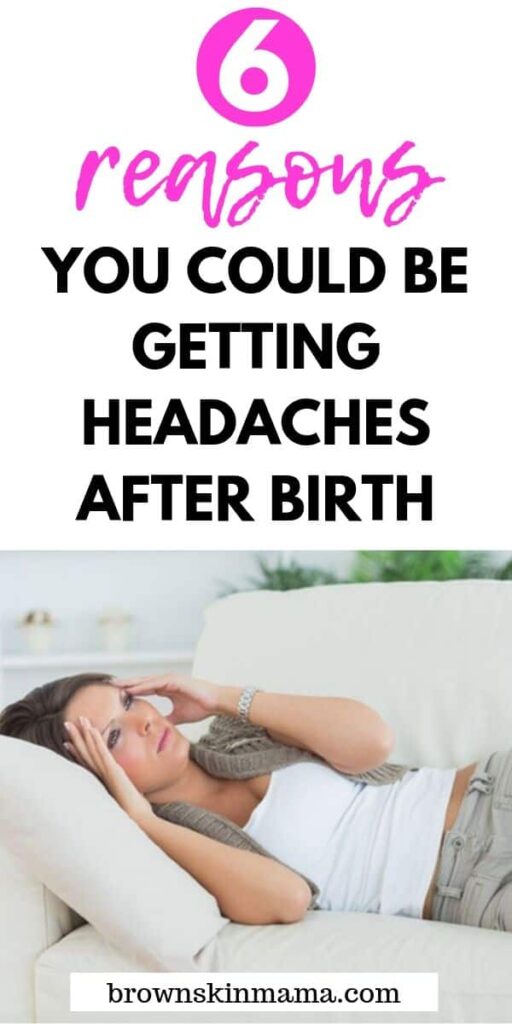
What is a postpartum headache?
Simply put a postpartum headache is a headache that happens after you have just delivered a baby.
Some women experience postpartum headaches everyday which can feel absolutely awful especially after having given birth.
After childbirth, there are a lot of things that happen in a woman’s body on the inside. These things can be a contributing factor in getting headaches.
More often than not these postpartum headaches that some women experience every day are usually down to one or more of the following; hormonal changes, sleep deprivation, anesthesia, dehydration or stress.
Postpartum headaches don’t only happen to women who have given birth vaginally, you can also get a headache after a c section too.
Most of the time there is a simple solution to fix this but other times it can be more complicated than this.
Let’s take a look a bit closer.
Related Posts:
- 6 Types of pregnancy pain that are completely normal
- Lightning crotch: Do you know what it means?
- Just got a positive pregnancy test, what next?
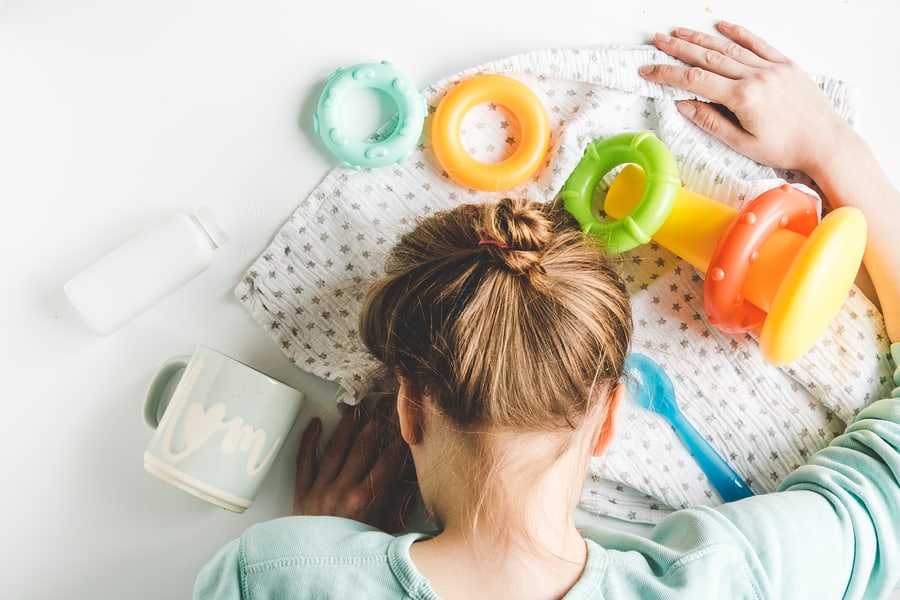
A new mom getting postpartum headaches everyday
Why do some women experience postpartum headaches every day?
We briefly glossed over some of the reasons that women experience postpartum headaches every day but I want to go into it in a little bit more detail with you.
1. Hormonal changes
Hormones have a large part to play from the moment of getting pregnant right up until after you give birth to your bundle of joy.
The first hormone you are likely to experience during early pregnancy is Human Chorionic Gonadotropin, which you may know as your HCG levels.
Hormones that can lead to a postpartum headache:
Human Chorionic Gonadotropin
HCG tells a woman’s body that there is a baby growing inside her.
HCG levels are peak from roughly 8 days after ovulation and peak around 60- 90 days afterward.
Any good pregnancy test should be able to pick up your HCG levels and confirm your pregnancy.
Estrogen
A sudden drop in estrogen levels can cause a woman to experience headaches.
It’s during the second and third trimester when you are more likely to experience high levels of estrogen.
Estrogen is quite important in the development of your baby as it helps to stimulate hormone production and helps your baby to grow.
Oxytocin
Oxytocin is another hormone that a woman experiences during pregnancy. Oxytocin is responsible for kicking off labor.
Relaxin
Relaxin’s job is to soften the ligaments around your pelvic bones. It does this to prepare your body for going into labor.
Relaxin can add to some of the discomfort that pregnant women feel during the late stages of pregnancy.
Prolactin
Prolactin is responsible for helping your body to prepare for the production of milk in order to feed your baby.
These are just some of the different hormones that you are likely to come across during your pregnancy and afterward.
Some of these hormones you may even experience when you are about to have a period before you even get pregnant.
This is why often you don’t feel like yourself when it is your time of the month.
As women, we are quite familiar with these feelings.
As your pregnancy develops some of these hormones are very high and can cause migraines during your pregnancy as it is a hormone balance your body is not used to experiencing.
Later on, these hormones begin to die off but other hormones come in to effect.
This means that your hormones are always going to be a bit up and down whilst you transition out of the postpartum phase.
After the postpartum phase passes all of your hormone levels should begin to level out back to normal.
All of these hormones are factors in the postpartum headaches you are experiencing every day.
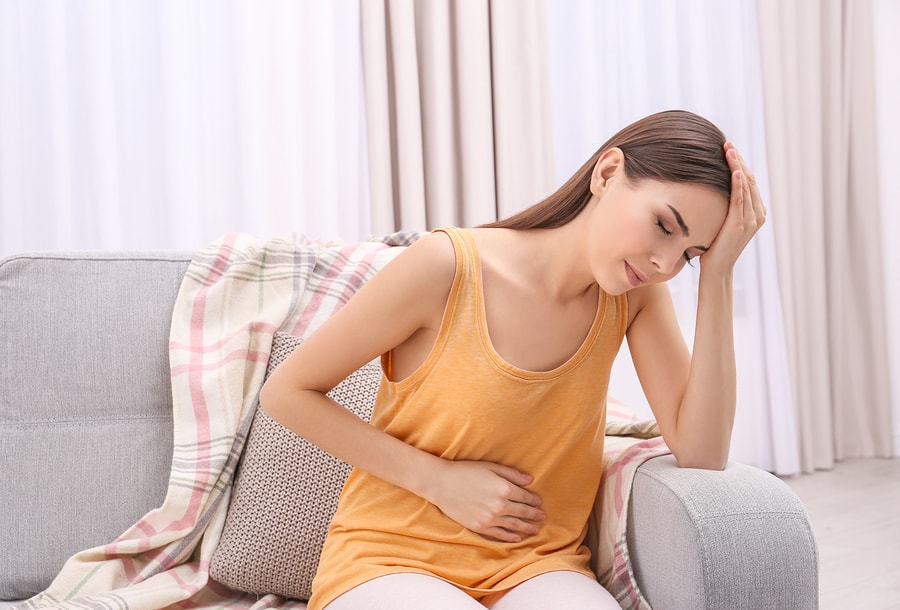
2. Sleep deprivation
Sleep deprivation during the postpartum phase can have a huge impact on you and how your body performs.
New moms trying to adjust to having a newborn and regulating some type of sleep pattern can be difficult, to say the least.
Your baby will not be sleeping through the night yet and is likely waking up to feed every few hours.
Whilst this is normal it does mean that your sleep will also be affected.
Even if you do get to sleep a little, the quality of the sleep that you do get will be greatly reduced until a routine is established.
Trying to look after a newborn baby whilst trying to get your own health back in order is no easy task.
Sleep deprivation can have a huge negative effect on you and cause you to experience postpartum headaches.
3. Anesthesia
If you had any type of anesthesia whilst you were giving birth then this could also be the culprit of your postpartum headaches.
Taking an epidural for pain relief will help you during your delivery but unfortunately, it is not without its side effects.
If you have taken the epidural and experience a headache afterward this is often referred to as a spinal headache.
Dealing with a spinal headache is a little more complicated.
There are other ways to treat this which you would have to speak to your doctor about.
4. Dehydration
After you give birth you will naturally lose a lot of fluids so it is important to stay hydrated as much as possible.
Staying hydrated is even more important for the mom who is breastfeeding.
In order to be able to produce enough milk for your baby, you must have enough fluids yourself.
Dehydration causes you to feel tired and will contribute to a postpartum headache.
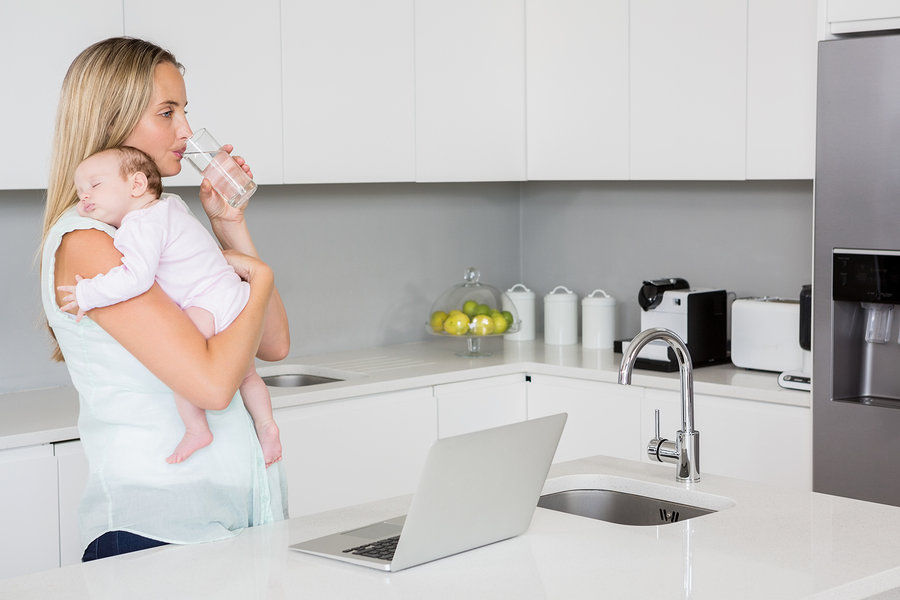
5. Stress
Stress has a lot to answer for and if you are a new mom it is important that you stay as relaxed as possible.
Stress will add to a lot of the emotions that you may be experiencing during this postpartum period.
Stress can also lead you down the road of postpartum depression if it is not managed correctly.
6. Postpartum preeclampsia
Postpartum preeclampsia usually comes into effect roughly two days after childbirth.
This type of preeclampsia is very similar to preeclampsia that is experienced during pregnancy.
If postpartum preeclampsia is left untreated it can lead to seizures and other complications.
One of the symptoms of postpartum preeclampsia is a headache so be on the lookout for anything that resembles this.

Can breastfeeding give you headaches?
Breastfeeding alone does not cause postpartum headaches but some women do feel a headache as they breastfeed.
Some of the reasons for this are similar to the above. Dehydration, stress or a rise and drop in hormone levels.
Ultimately breastfeeding alone does not cause postpartum headaches.
How to treat your postpartum headache symptoms
If you are not experiencing any additional complications it should be quite straight forward to treat your postpartum headache and prevent it from happening again.
If you visit your doctor they should be able to assist you with some over the counter medications.
These should take no more than a few days to clear up your migraine.
If the headaches after pregnancy persist then it could be something more complicated and may need further alternative treatments.
On the whole, if you want to prevent the postpartum headaches from returning again then you need to make sure you implement the following things into your lifestyle:
- Rest
- A balanced diet of food
- Staying hydrated by drinking enough fluids
- Staying as far away from stress as possible.
Final thoughts on getting postpartum headaches everyday
A migraine after pregnancy is the last thing that any woman wants but sometimes there is nothing more that you can do to avoid it.
Use this postpartum period to get to know and grow closer to your baby.
It can be a difficult period of adjustment for a lot of women so go easy on yourself.
These initial 6-8 weeks with your newborn baby will go past in the blink of an eye so choose to enjoy it.
Remember that if you are experiencing severe headaches after a c section or a vaginal birth and you are very concerned about it don’t hesitate to contact your doctor immediately.

Related postpartum posts:
- What to do if you are dealing with postpartum hair loss
- 12 Things not to do after giving birth
- 7 Tips to guarantee your survival of the fourth trimester
- The 4 best postpartum girdles every mama needs
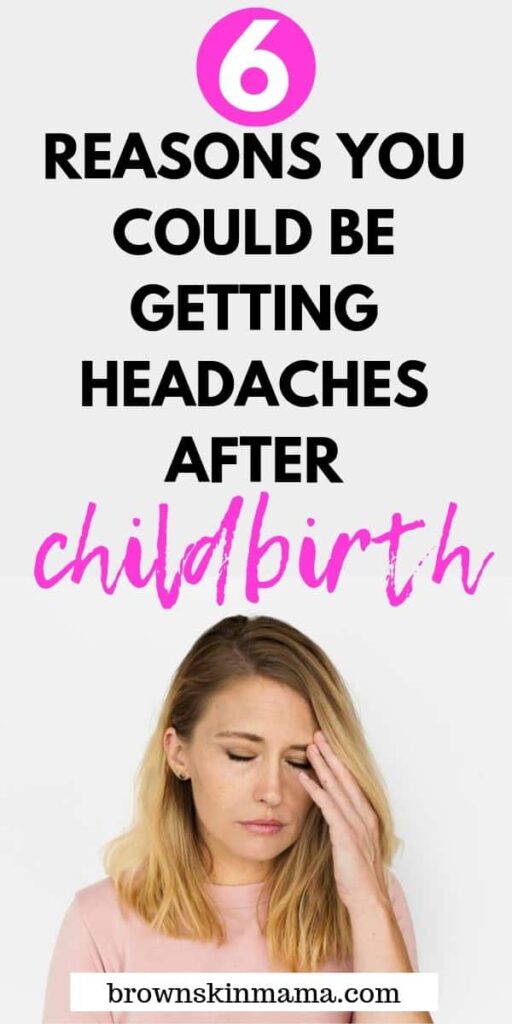
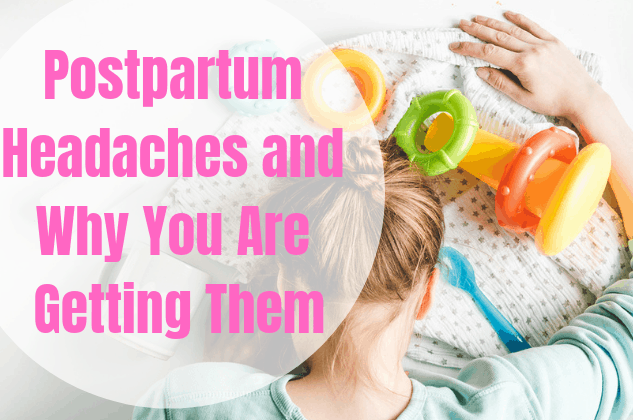
Leave a Reply
You must be logged in to post a comment.